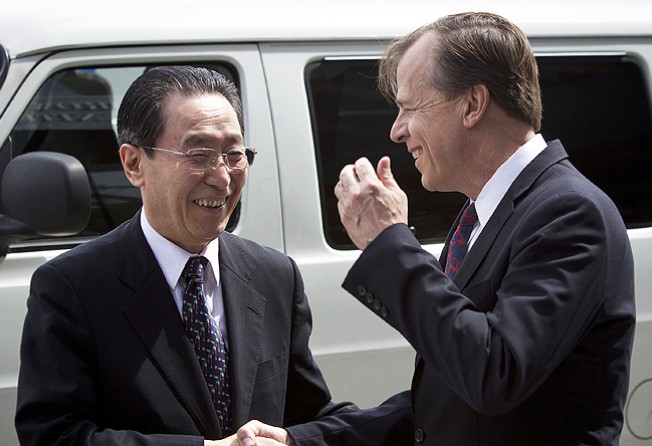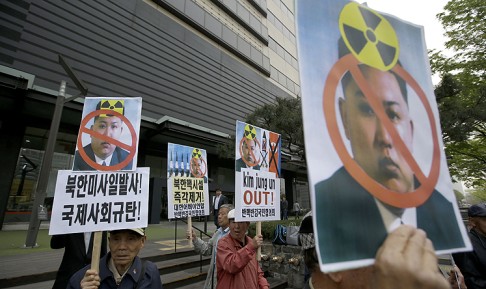US, China in ‘productive’ talks on North Korea after nuclear test threat
Chinese and US diplomats meet in New York over North Korea's warning it may conduct a new type of nuclear test

The United States and China have held “productive” talks on North Korea, the US State Department said on Tuesday, part of stepped-up international diplomacy after Pyongyang warned of plans to conduct a new type of nuclear test.
US Special Representative for North Korea Policy Glyn Davies met with his Chinese counterpart Wu Dawei in New York on Monday and Tuesday. Wu would continue discussions with Davies and other US officials in Washington on Friday, a State Department statement said.
“The United States and China agree on the fundamental importance of a denuclearised North Korea,” it said, adding that the meetings were part of a series of high-level US-China discussions on how to achieve that in a peaceful manner.
The talks follow meetings last week between the United States, Japan and South Korea, the countries that along with China and Russia were trying to negotiate a nuclear deal with North Korea until Pyongyang declared the so-called six-party talks dead in 2008.
North Korea said on Friday that the world would have to “wait and see” when asked for details of the “new form” of nuclear test it has threatened to carry out.
Pyongyang made the test threat after the United Nations Security Council condemned North Korea’s firing of two medium-range Rodong ballistic missiles into the sea on March 26.
It was North Korea’s first firing in four years of mid-range missiles that can hit Japan and followed a series of short-range rocket launches over the past two months.
Members of the Security Council condemned the move on March 27 as a violation of UN resolutions and agreed to continue discussions on an “appropriate response”.
Diplomats said then that it was possible the Security Council would expand a current UN blacklist to include additional North Korean entities involved in Pyongyang’s missile programme. But they said it could take weeks to reach agreement.
The council expanded its sanctions on North Korea after Pyongyang’s February 2013 atomic test, its third nuclear detonation since 2006.

Current UN sanctions target North Korea’s missile and nuclear programmes and attempt to punish its reclusive leadership through a ban on the export of luxury goods to the country.
Nuclear expert Jeffrey Lewis, of the Monterey Institute of International Studies in the United States, said last week that North Korea’s reference to a new form of test could mean simultaneous detonation of two or more devices as part of a programme of more intense nuclear testing expected over the next few years.
While North Korea has detonated several nuclear devices, analysts have expressed doubt it currently has the technical capability to reliably mount a nuclear warhead on a missile.
US President Barack Obama is to visit South Korea and Japan as part of a tour of Asia next week, and the North Korea issue will be high on the agenda.
Earlier on Tuesday, China’s Foreign Ministry spokeswoman Hua Chunying warned against any action that could lead to the escalation of tensions on the Korean Peninsula and said China would continue to play a positive role in promoting a “soft landing” there, China’s state news agency Xinhua reported.
She termed the situation on the peninsula fairly “sensitive” and “fragile,” it said.